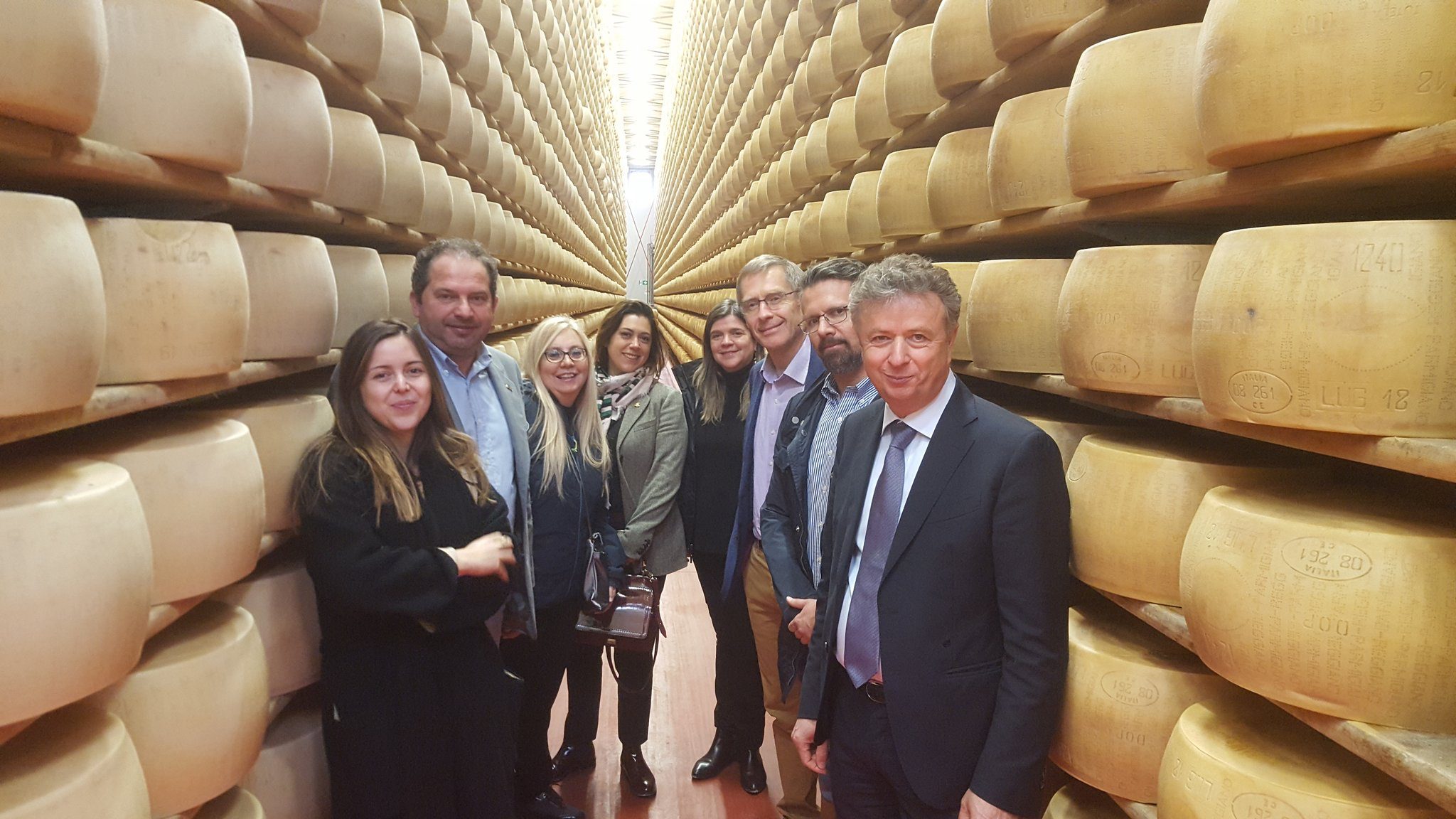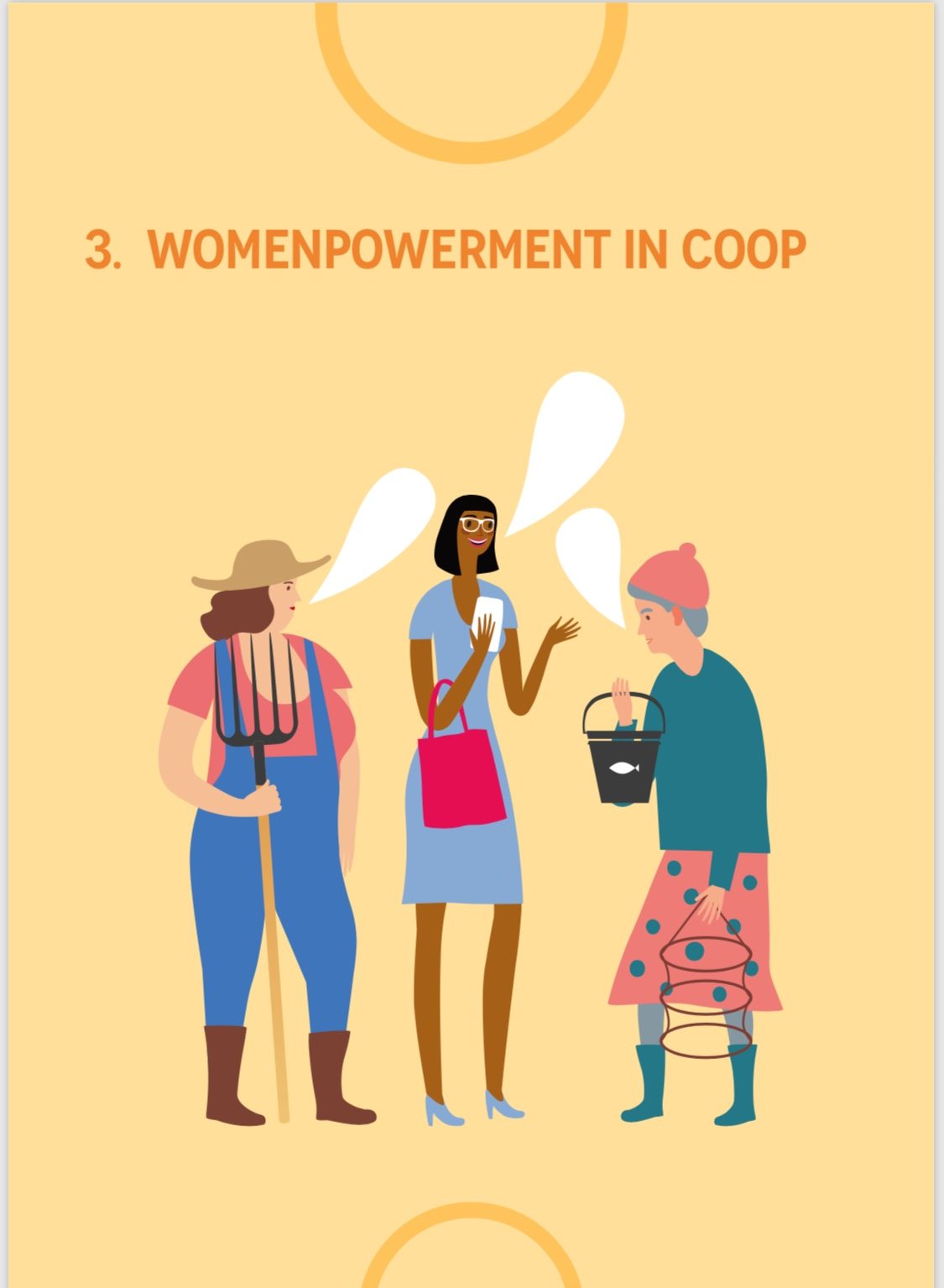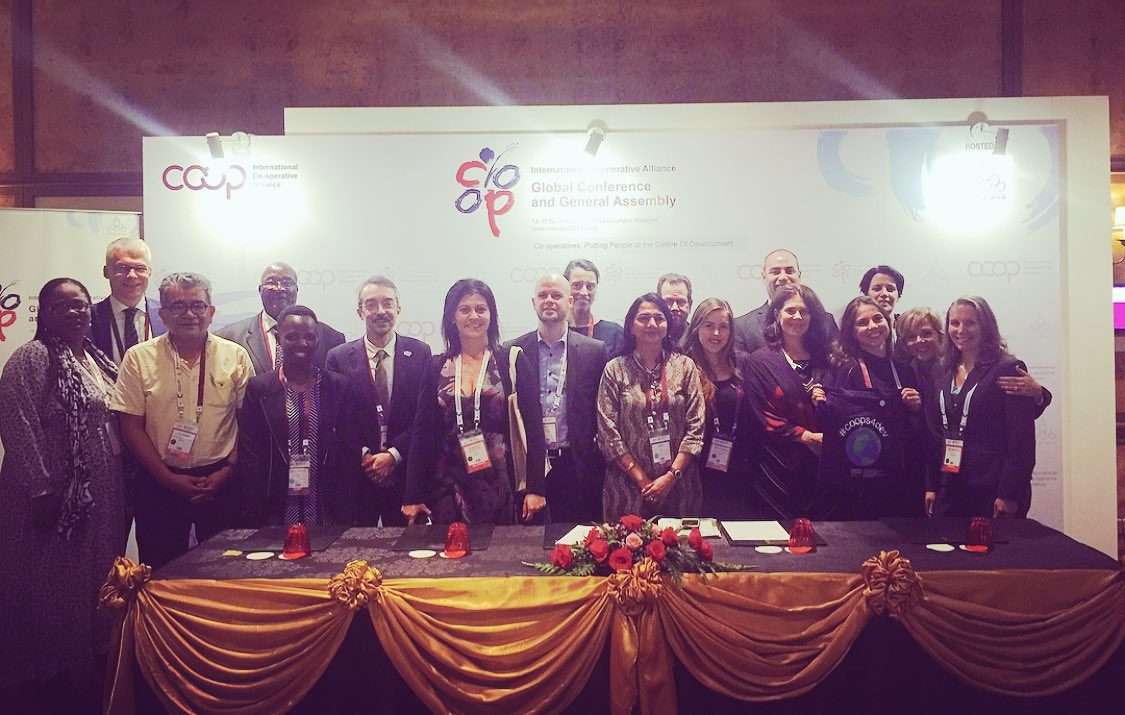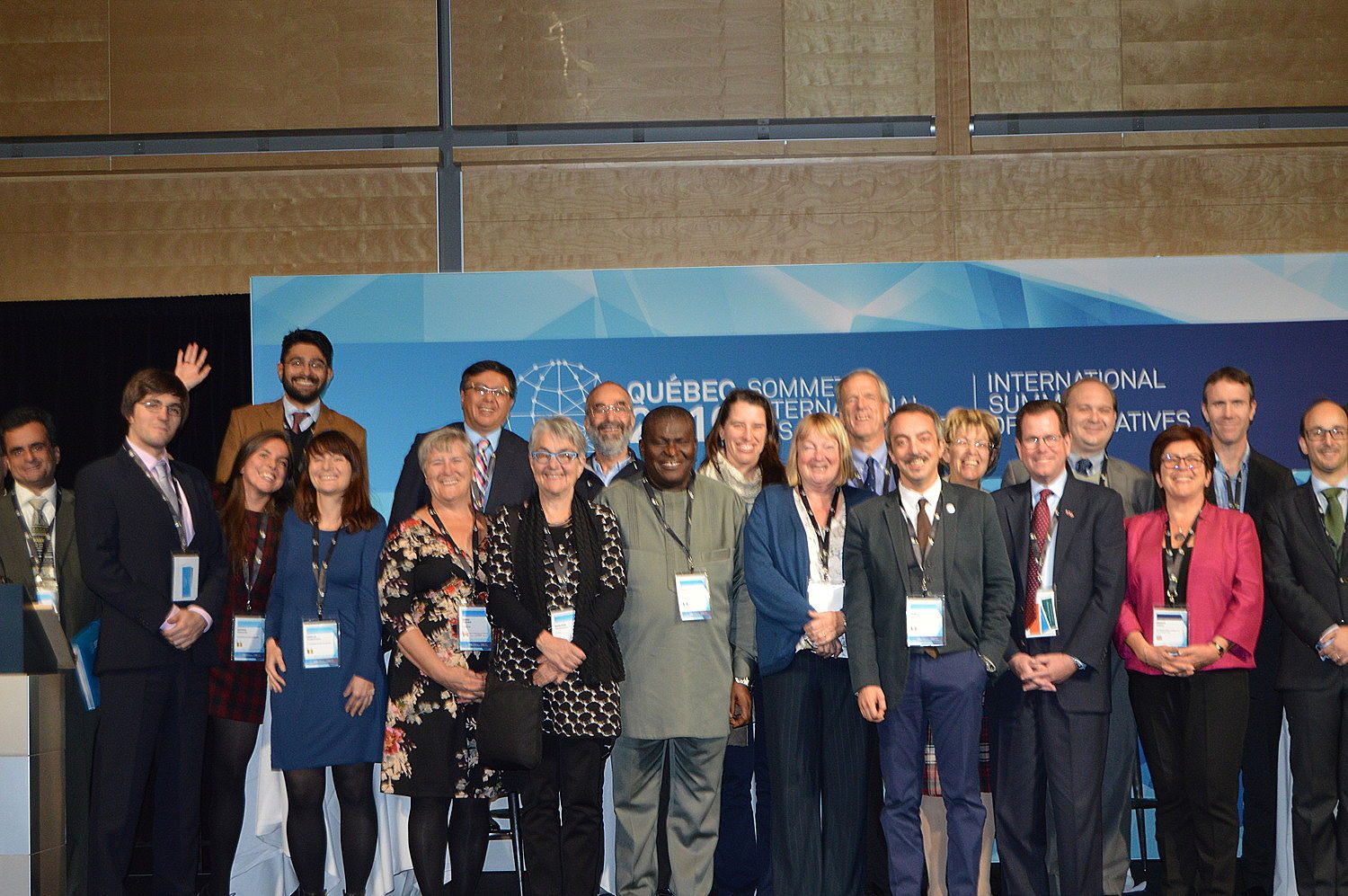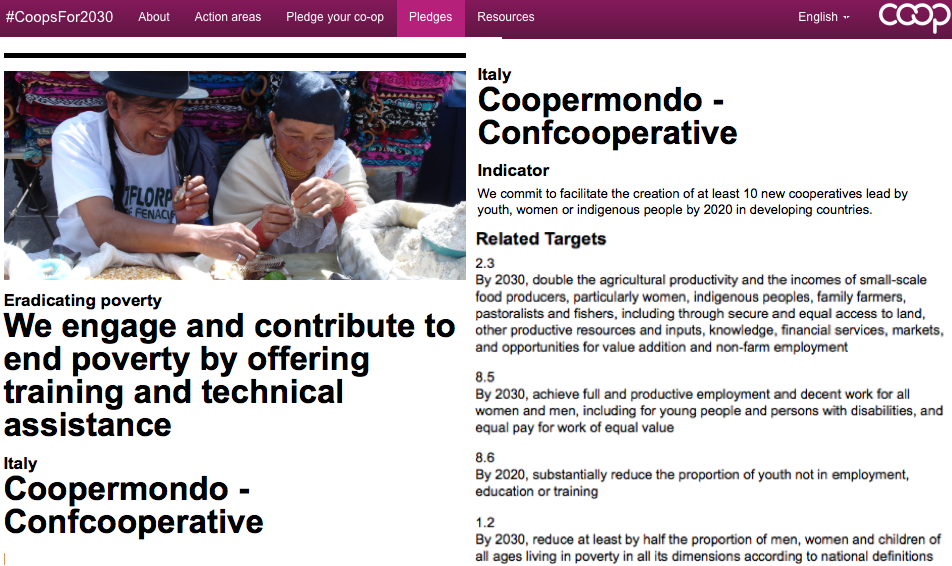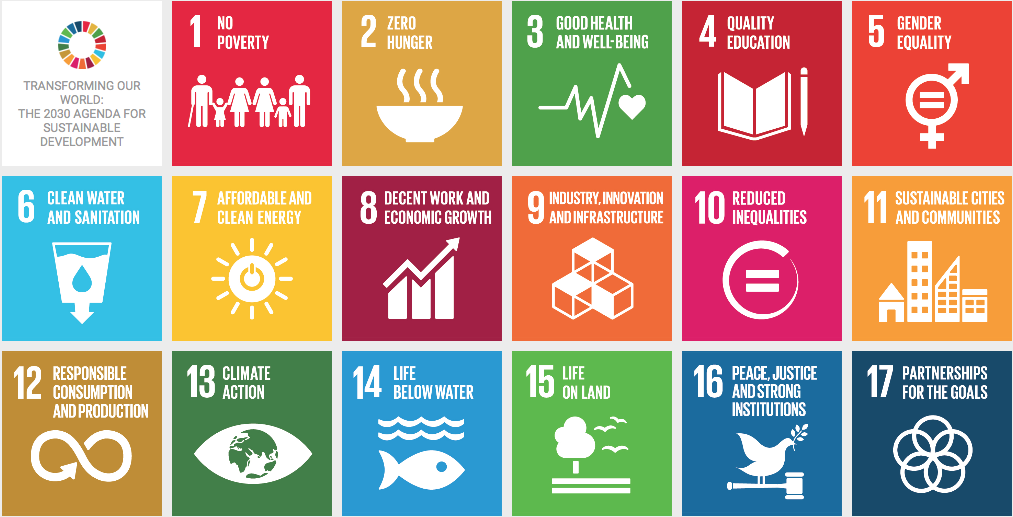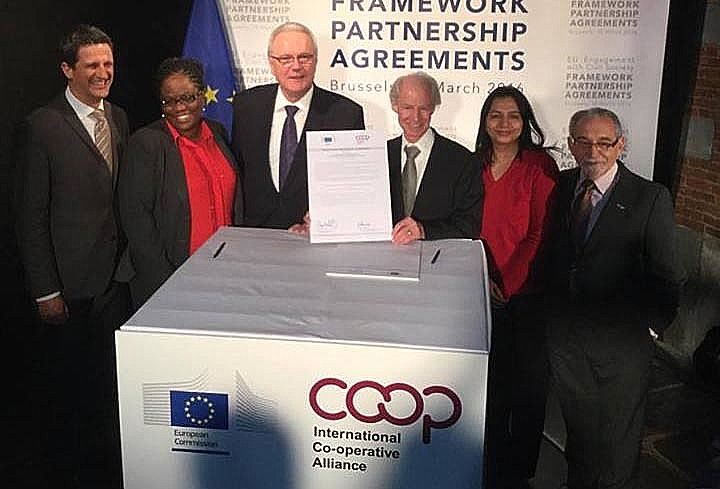Women cooperating in Italy and in the world; women who, in developing countries, are gathering together in order to overcome injustice and inequalities and to create new opportunities for themselves and their communities. This is the file rouge inspiring “WomeNpowerment in Coops – Italian cooperative experiences toward the achievement of gender equality in the world“, an editorial project written by Coopermondo (Confcooperative’s[1] NGO) and Confcooperative’s Commission of Women Cooperative Managers. In the book, Italian and international co-operative stories show the added value of co-operation for the achievement of gender equality. Goal n. 5 of the SDGs is Confcooperative, which shows a female employment rate that exceeds 61% of the employed (528,000) of its enterprises (19,000), where female governance stands at 26% (10% more than to other business models).
The handbook has been launched in occasion of International Women Day 2018, during an international conference who counted on the presence of Maurizio Gardini, President of Confcooperative, Bianca Maria Pomeranzi, senior expert in gender issue from the Italian Ministry of Foreign Affairs and Simel Esim, Director of Cooperative Unit, ILO, United Nations together with many cooperators’ women experts in different fields.
“In developing countries, cooperatives enterprises are and will increasingly be committed to transferring know-how to trigger local development and to make women and men protagonists in their own communities. Also, in Italy, co-operatives are one of the very few tools for social mobility for women and youth. In our members cooperatives – says Maurizio Gardini, president of Confcooperative – the female employment rate is equal to 61%. In the implementation of development projects, in low-income countries, we promote a model that put the social rescue before the economic value, in order to guarantee the dignity of one person. In this common thread there is all the essence of co-operation, the real one, which includes, attentiveness to the needs of the territory and makes the economy grow together with people”.
“Women, especially in contexts of poverty, are those who represent the majority of the workforce, the most reliable in credit refunds, women are those that can play a key role in the processes of inclusion and integration in local territories. The WomeNpowerment project – adds Claudia Fiaschi, Confcooperative’s and Coopermondo’s Vice-President – is a space for discussion between both women and men cooperators to find common solutions to individual problems. Both in Italy and developing countries, many women faces challenges and abuses; a co-operative enterprise in many cases represent the space where they found economic independence and solidarity within a network of women, fundamental for their professional and personal empowerment”.
«Confcooperative – says Anna Manca, Coordinator of the Commission for Women Co-operative Managers, Confcooperative – broadens the focus to gender policies also in relation to the United Nations Sustainable Development Goals (SDGs). The full affirmation of a model of fair and sustainable development cannot be separated from a more active and conscious role of women on which the cooperative world has shown that it can measure itself with good results. Even if we are strongly committed to promoting equality in political, economic and decision-making processes, unfortunately there are still too many women who do not have access to education, medical care and decent work. Reaching gender equality and promoting the empowerment of girls and women, as foreseen by Agenda 2030, is not only a fundamental human right, but the necessary condition for a model of development that everyone will benefit from».
MOZAMBIQUE, COLOMBIA, ECUADOR, BRAZIL, ITALY: COOPERATIVE STORIES OF GENDER EQUALITY
Africa Hand Project (Mozambique). The goal of the project is to reduce hunger and poverty through the development of a sustainable agriculture and the dairy industry in Mozambique, by promoting a cooperative supply chain that can improve the nutritional education of the population and make women protagonists. In Mozambique, in fact, almost half of the population suffers from chronic malnutrition that begins already during pregnancy and limits development in the early years of life. Therefore, the project also promote the supply of milk and dairy products to pregnant women and children under five years of age, integrating their diet with products, the result of local breeding, with a high nutritional profile and able to make the difference.
AGRICOOP Mujer (Colombia). Creating bonds of trust between women from five different ethnic groups, in a social context strained by years of guerrilla warfare and drug trafficking, in order to engage them and promote a safe and economic independence. This is AGRICOOP, a process of empowerment of over 100 women who were able to overcome mutual distrust. Coopermondo – Confcooperative has followed their training. Some of them joined a weavers’ cooperative to sell their products. Others want to be part of this chain and become sheep breeders to ensure the supply of wool for the creation of artifacts. Fundamental for the development of the community is to have created an area of knowledge and sharing.
Microfinanza Campesina (Ecuador). As part of the wider Microfinanza Campesina project in Ecuador, which sees the Federation of Credit Cooperative Banks (Federcasse – BCC) engaged since 2002 alongside two Ecuadorian entities (banCODESARROLLO and FEPP) for the development and strengthening of popular finance, attention is dedicated to women. The subsidized loans of Federcasse have allowed banCODESARROLLO, over time, to field more than 45 million dollars to provide loans to about 12,000 Ecuadorian women, in many cases grouped into cooperatives. When this money is returned, they have played an important role for these women and their families. Those loans have turned into land, home, animals, seeds, tools. They have become dignity, freedom, well-being, fairness.
Juntos contra a Exclusão Social (Brazil). The project aims to promote social and economic integration and to improve the living conditions and social and economic integration of women and young people of 110 families in the cities of Fortaleza and Recife who live in extreme fragile conditions. The project also aims to the empowerment and professional training of 120 women and youth, helping them to create a path of self-entrepreneurship even in a cooperative way. Both in Fortaleza and in Recife, the women involved in the project have a very low schooling rate (41.5) and belong to discriminated ethnic groups (black and mestizo). Nine out of ten women have one to four children, four out of ten are divorced and almost seven out of ten have a very low paid job. In Brazil, in order to obtain a pension from the State, 49 years of contributions are required, and many people will not be able to benefit from it in the future. Hence, the importance of offering women who have started an individual activity, the opportunity to join a cooperative.
The Cantina Clavesana (Piemonte, Italy). Founded in April 27, 1959 from 32 winemakers to transform the grapes conferred by the 300 members with a total production of 30,000 hectoliters of wine and a vineyard area of 450 hectares all certified with the Denomination of Controlled Origin D.O.C. and Controlled and Guaranteed Denomination of Origin D.O.C.G. The female-run winery has activated 4.0 agriculture projects to monitor the vineyards using drones and satellites to reduce costs and environmental impact. Among the best practices is that of holiday planning that takes place according to the needs of women workers: 60% of working women ask for flexibility to respond to needs such as assisting children or the elderly, as well as permits for visits and medical treatment. For work at the weekend, between workers, a structured turnaround and a compensation of hours and days are activated.
Open Space “Milano 6 L’Altro” (Milan, Italy). A path of empowerment that helps women to get back to work by designing new services for the community. The project is characterized by making women active and overcoming the challenges of reconciliation. Motherhood and work life are the starting point. One in four women leaves the world of work after having their first child. This project identifies solutions to help families to find quality, economic and shared answers such as condominiums and baby-sitting services. The method for this process is that of design thinking. There are many women involved in the path and each carrying a different story with her: different paths of life; Italian women, as well as foreigners who have suffered from immigration stories and who had to start over again in Italy. In common they all have the desire to be protagonists of their own lives.
The San Leopoldo cooperative (Grosseto, Italy). Established in 1998 for fishing, aquaculture and related activities, the cooperative aims at creating job opportunities for its members. The members of the cooperative are in possession of a degree in Biology, Agricultural Sciences and Economics, as well as qualifications for professional fishing and underwater activities. The diversification of skills ensures professionalism in various sectors of activity. To date, the cooperative is active in various fields: 1) professional fishing and related activities (fishing tourism); 2) aquaculture; 3) technical assistance for funding applications to fishermen and fish farmers; 4) scientific research; 5) project design (Interreg, EASME, FEAMP …); 6) environment: particular attention is given to environmental issues through specific sector projects, such as the repopulation of river courses with eels.
Download the handbook here https://www.coopermondo.it/wp-content/uploads/2018/03/WomeNpowerment_InCoops-ENG.pdf
_______________________________________________________
[1] Confcooperative is the Italian Confederation of Cooperatives, representing more than 18.000 co-operatives,


